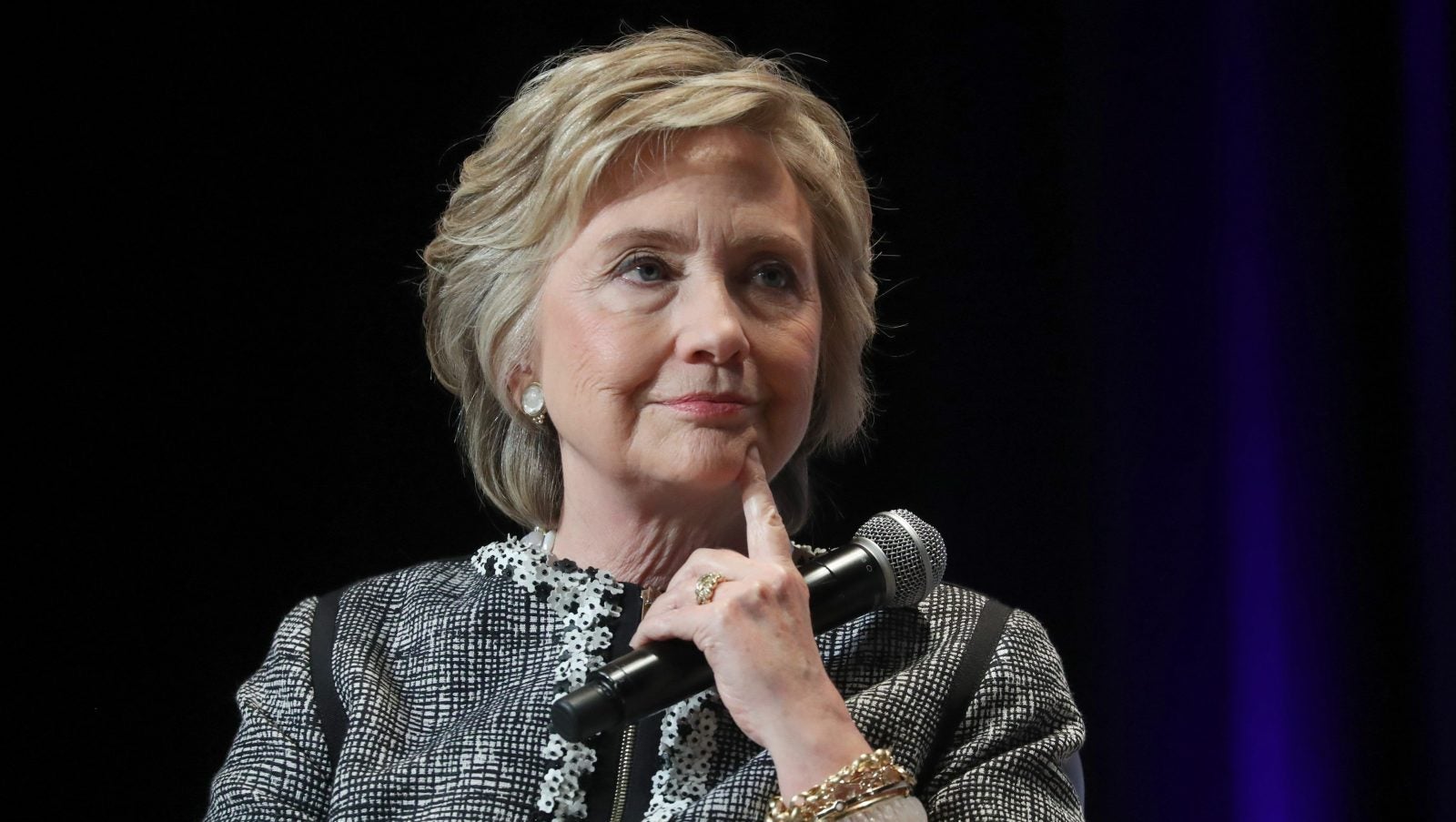Hillary Clinton’s new TV show about anti-suffrage America will be terrifyingly relevant
Hillary Clinton announced this week that she’ll be adapting a book on women’s suffrage for TV, with American film director Steven Spielberg’s Amblin Television production company.


Hillary Clinton announced this week that she’ll be adapting a book on women’s suffrage for TV, with American film director Steven Spielberg’s Amblin Television production company.
The book being adapted is The Woman’s Hour: The Great Fight to Win The Vote, written by journalist Elaine Weiss and published in March 2018. The enthralling, hyper-educative narrative meticulously explains how American feminists—oft-divided by race, class, and varying degrees of progressiveness—waged, and eventually won, the battle for women’s voting rights.
Clinton announced the news via Twitter, writing that women like herself “stand on the shoulders” of America’s earliest suffragettes.
But why adapt Weiss’ book, when there are so many histories on women’s suffrage? And why now?
For answers, it’s useful to consider one of the most intriguing images in Weiss’ book—an anti-suffragette poster from the early 1920s, featuring a cartoon titled “America When Feminized.” The cartoon, pictured below, was shared widely during the summer of 1920 in Nashville, Tennessee, which had become the epicenter of the women’s suffrage movement. As I noted in Quartz in a July 3 article examining the poster and its ongoing relevance, the battle between suffragists and anti-suffragists mounted that sweltering summer, as both sides lobbied furiously to secure votes among Tennessee legislators, who would essentially cast the deciding vote either for or against the 19th Amendment to the US Constitution, granting women the right to vote.

The poster—created by the Southern Women’s League for the Rejection of the Susan B. Anthony Amendment, a union of women from every southern US state—shows a hen in a “Votes for Women” sash leaving her nest behind, and makes claims such as “a vote for federal suffrage is a vote for female nagging forever;” “women’s suffrage would masculinize women and feminize men;” and “the history of ancient civilization has proven that a weakening of the man power of nations has been but a pre-runner of decadence in civilization.”
According to Weiss, what’s most interesting about the poster, or “broadside” as it was called then, is that it was created by women to disenfranchise women—a theme that remains excruciatingly relevant in light of the 2016 US presidential election, in which 51% of white women voted for a self-proclaimed sexual predator.
At its core, the cartoon implies that women’s suffrage, and civic engagement at large, isn’t just a political fight. “These women say very matter of factly that women’s suffrage will bring about the moral collapse of the nation,” Weiss told me. The cartoon also has plenty of racist undertones, implying that suffrage would give all women the right to vote. “That means black women are equal to white women. And that’s going to lead to social equality, they threaten, which will bring down the entire structure of white supremacy, and in turn America,” Weiss explained.
When I asked Weiss what remains relevant about the “America When Feminized” poster, she replied, “Everything.” Indeed, read out of context, the poster easily could have been designed by misogynists today. As Weiss noted:
“You know, today we’re told a woman can’t make decisions about her body. We’re told that half of our nation, women and immigrants, does not really count. You saw a lot of this same fear of gender role inversion with marriage equality. And of course, every working mom has faced this idea that you’re leaving the nest, you go outside the home, your children are going to suffer for it.
“And there are a record number of women running for office this year, which is tremendous, but there’s something kind of unusual and strange and maybe unnatural about that, the idea that women could enter the public sphere in the same way as men. I hope we’ve gone beyond this poster’s misogyny and white supremacy a bit, but when you see news photographs of all white male panels and committees in Washington making decisions about women’s health, you question how far we have come.”
Nearly a century on, the sexist messaging in “America When Feminized” continues to epitomize our fears about women’s progress. Consider the backlash to the #MeToo movement, the persistence of the gender pay gap, or the sheer reality that Donald Trump, who bragged about grabbing women “by the pussy,” was elected US president.
What’s more, consider who Trump defeated: Hillary Clinton, the most qualified presidential candidate in American history. No wonder she’s rallying behind Weiss’ story—it’s her story, too.